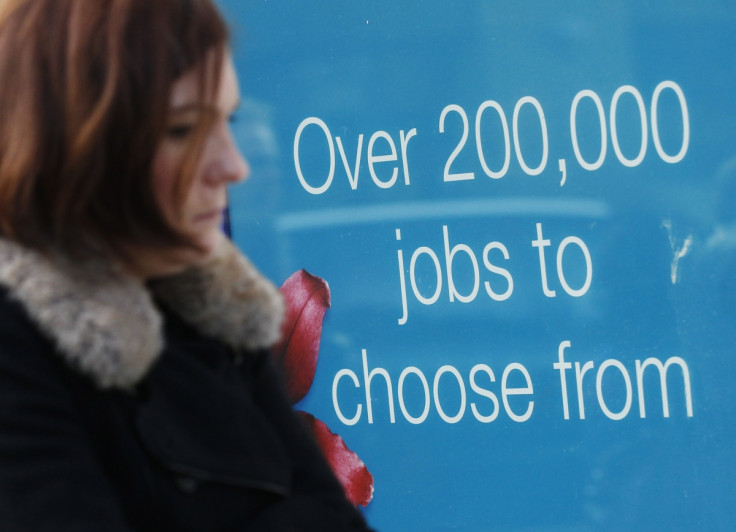UK Employment Surge to Slow Amid Productivity Hangover

The UK's recent surge in employment is set to slow while pay rises continue to lag behind inflation.
According to the Chartered Institute for Personnel and Development (CIPD), which questioned 1,000 British employers, the rate of recruitment has slowed significantly and the vast majority of organisations expect to give pay awards below the current rate of CPI inflation (2%).
The CIPD said this reflects a "productivity hangover" affecting UK employers who have maintained and increased employment over a sustained period of falling output.
The report's net employment balance, which measured the difference between the proportion of employers that intend to increase total staffing levels and those that intend to decrease total staffing levels in the fourth quarter of 2013, has fallen to +16 from +24 over the past three months.
"Employment growth, normally a lagging indicator of recovery, seems to have preceded the stronger signs of growth we're now seeing," said Gerwyn Davies, the CIPD's labour market adviser.
"So it is unsurprising that employment intentions are now dipping just as economic growth seems to be taking hold, with employers needing to tackle the major productivity hangover affecting the UK economy.
The research also revealed that optimism is higher in the manufacturing and production (+34) sector than the services sector (+21).
Positive employment expectations are reported in the north of England (+7) and the south of England (+10).
The study also found SMEs are significantly more positive about their employment prospects (+40) than large employers (+5).
For instance, almost three quarters of employers (71%) say that they will be awarding pay increases of 2% or less in the 12 months to December 2014.
Recruitment intentions among LMO employers have fallen to 54% from 65% during the past three months.
This is the lowest proportion planning to recruit staff since the LMO survey began.
In addition, around one in five employers plan to make redundancies in Q1 2014, which is also equal to the lowest level since the survey began.
Excluding bonuses, average basic pay is predicted to increase by 2% in the 12 months to December 2014, up on the figure of 1.6% forecast last quarter.
The CIPD said the median basic pay increase is also expected to be 2%.
Davies added: "Weak productivity partly explains why a majority of employers expect to continue awarding below inflation pay rises for their workforce.
"Sustainable increases in real wages can only be delivered if organisations can boost productivity, for example through smart investment in the training, development and management of their staff."
© Copyright IBTimes 2025. All rights reserved.






















